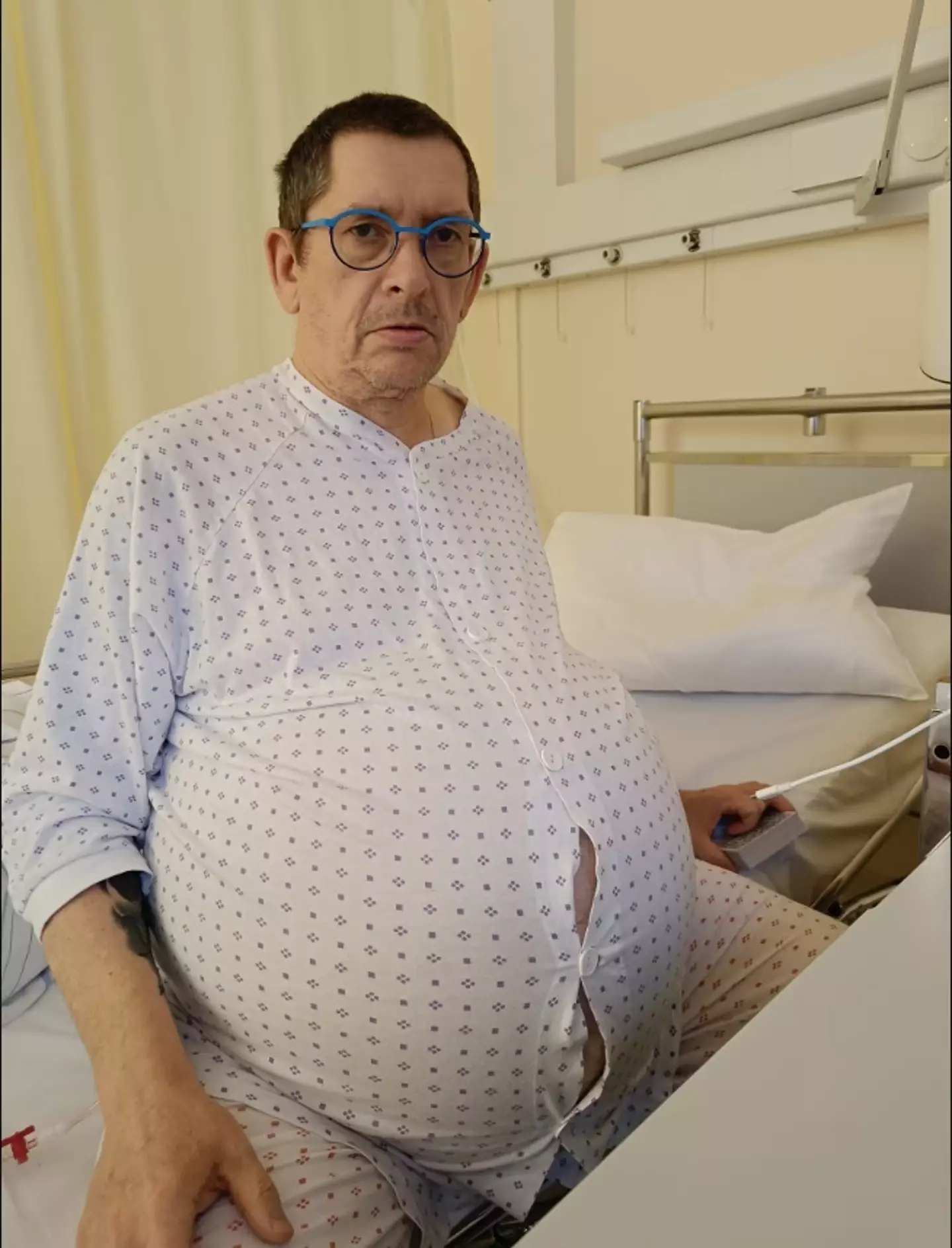A man initially believed to be overweight was prescribed Ozempic and enrolled in weight loss programs before it was discovered he had a 60-pound tumor inside him.
Thomas Kraut, 59, sought medical advice from various doctors as his abdomen continued to grow in size.
Medical professionals erroneously attributed this growth to ‘fat,’ leading them to place Thomas on weight loss and nutrition plans, unaware that cancer was developing within him.
Originally from Germany and now living in Norway, Thomas first noticed health issues in 2011 as his abdomen expanded.
He was diagnosed with type 2 diabetes in 2012, but it took another 11 years for doctors to recognize the true nature of his ailment.

“My stomach kept getting bigger. I went from doctor to doctor and in 2019 I was finally approved for a gastric sleeve,” Thomas explained.
“The doctors only ever talked about being overweight and diabetes. I was given Ozempic for diabetes and before the gastric sleeve I had to attend nutrition and fitness courses for several years.”
When doctors examined Thomas’s abdomen, they noticed the hard surface was not due to fat.
“In addition, I had lost so much weight with the change in diet and Ozempic that my face and arms were very thin. Only my stomach was huge. The doctor even said that I was actually malnourished,” Thomas mentioned.
Alarmed by their observations, the doctor scheduled a CT scan for Thomas, which revealed a significant tumor.
Thomas stated: “It was a real shock for me. My kidney was affected because the tumor was feeding on my right kidney.”
Two weeks later, doctors diagnosed him with a rare fatty tumor comprised of numerous smaller cancerous areas encased in fat.
In September 2023, Thomas underwent a ten-hour surgery to remove the tumor, which weighed 27kg (60.18 lbs) and measured 52.3cm (20.59 inches) in diameter, resulting in considerable damage to his body and part of his small intestine.

Additionally, Thomas’s right kidney had to be removed during the procedure.
Although his health has improved, Thomas still has cancerous tissue in his body.
“I go to a psychologist for therapy every two weeks. I have to go to the oncologist twice a year because I still have tumor tissue inside me that is growing. I was told that it cannot be removed because it is connected to several organs,” he remarked.
Thomas has also initiated legal action against the doctors who failed to diagnose the cancer.
However, given the tumor’s rarity, medical practitioners argued they couldn’t be held accountable for the oversight, resulting in the dismissal of the case.
Thomas’s lawyer has since filed an appeal against this dismissal.
“My lawyer has lodged an objection, it will work out somehow,” Thomas expressed.

